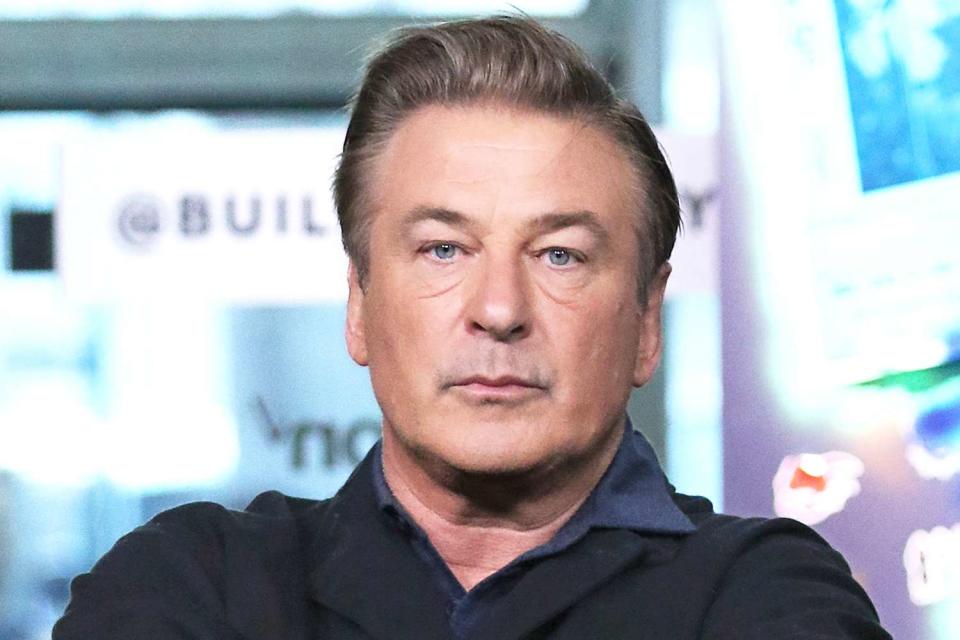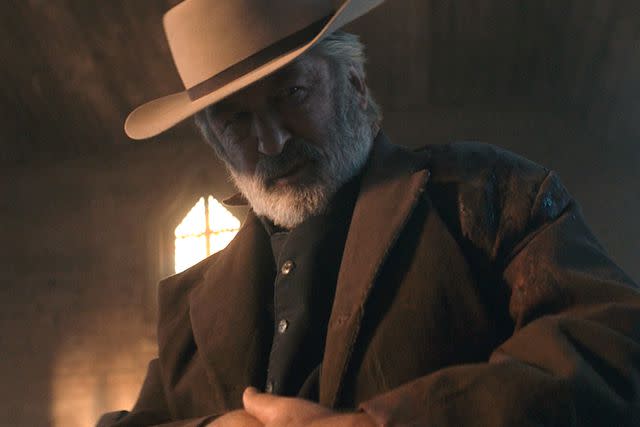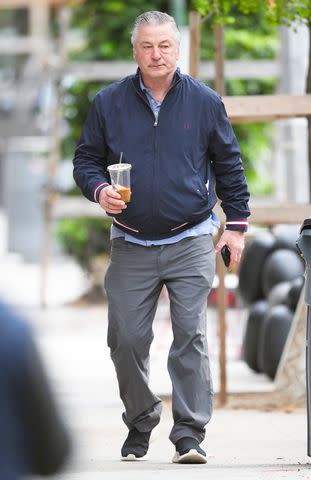Alec Baldwin Could Still Have His Manslaughter Charge Dismissed: Legal Expert Explains an 'Unlikely' Scenario
Emily D. Baker, a former L.A. Deputy District Attorney who is not involved in the case, explains why Baldwin is still likely headed to trial in July

Jim Spellman/Getty
Alec Baldwin in 2019The judge in Alec Baldwin’s Rust case upheld his involuntary manslaughter charge May 24
Before the judge issued her ruling on Baldwin's March motion to have the case dismissed, Baldwin’s lawyers filed two more motions
Legal expert Emily D. Baker, a former L.A. Deputy District Attorney who is not involved in the case, breaks down what happens next
The judge in Alec Baldwin’s Rust case upheld his involuntary manslaughter charge May 24, but the actor’s lawyers are still hoping to get the charge dropped before his trial in July.
That is “incredibly unlikely” to happen, legal expert Emily D. Baker, a lawyer and former L.A. Deputy District Attorney who is not involved in the case, tells PEOPLE.
Even before Judge Mary Marlowe Sommer issued her ruling on the 66-year-old’s March 14 motion to dismiss the case against him — in which the actor’s lawyers alleged that special prosecutor Kari T. Morrissey gave prejudicial instructions to the grand jury that ultimately indicted the actor in January — Baldwin’s attorneys filed two additional motions on May 6.
In those motions, they argued that the case should be dismissed due to the “destruction of evidence,” and prosecutors’ “failure to allege a criminal offense.”
Related: Everything to Know About the Rust Shooting Case and Alec Baldwin's Upcoming Trial

Baldwin’s lawyers “attacked the indictment first. Now they're attacking the other ways to get this dismissed because it's better for their client to get this dismissed than to go to trial,” explains Baker. “It's incredibly unlikely that that will happen.”
“Judges are hesitant to turn over indictments and these motions both seek in different legal ways to throw out the indictment,” continues Baker.
Regarding the alleged “destruction of evidence,” Baldwin’s lawyers claim that when the FBI ran tests on the prop gun that Baldwin was holding on the New Mexico set of the Western movie Rust when it discharged, killing cinematographer Halyna Hutchins and injuring director Joel Souza, the gun was destroyed.
Those tests were conducted to determine whether the gun could have discharged even if the trigger hadn’t been pulled; Baldwin has insisted he never pulled the trigger and did not know the gun accidentally contained live ammunition.

Baker doesn’t believe that the defense lawyers’ arguments will sway the judge, based on what unfolded at the trial of Hannah Gutierrez-Reed, the Rust armorer convicted of involuntary manslaughter in March.
“I don't think the case will be dismissed based on that because what we heard at Hannah's trial was that they were able to do a substantial amount of test firing of the weapon before the destructive testing, and so there's quite a lot of information on the record,” she says.
As for the motion from Baldwin’s attorneys regarding the prosecutors alleged “failure to allege a criminal offense,” Baker explains, “They're really arguing that Baldwin does not have an obligation to check the gun and that the state alleging that Baldwin has an obligation to check the gun is not a proper argument.”
She says that argument is also unlikely to sway Sommer: “Judges are much more likely to let a jury decide it than to throw it out.”
Even if Baldwin’s efforts fail, his attorneys have succeeded in creating more work for the prosecutors, says Baker: "It keeps the prosecution very busy.”
“I think the size of Baldwin's legal team is in a position to overwhelm the prosecution with the motions leading up to trial because the prosecution does not have nearly as many lawyers or as much support as Baldwin's firms,” continues Baker.
Baldwin’s recent motions list five defense attorneys; for the prosecution, Morrissey is working with attorney Erlinda Johnson, who was named as a special prosecutor in April, just before Jason J. Lewis stepped down from the case due to a scheduling conflict.

Good Man / SplashNews
Alec Baldwin in New York City in AprilWhat happens next? Prosecutors have responded to both of Baldwin’s May 6 motions. Now the defense attorneys have a chance to reply, then Sommer can schedule a hearing to listen to arguments from both sides.
“These timelines are going to start getting shorter because trial's in July. So there's a lot of work to happen in June,” notes Baker, who says the attorneys will also start filing motions “about what evidence comes in or doesn’t” at trial.
“This is a speeding train at this point of how fast this trial will be upon us, and there's a lot of litigation to happen in the next month,” she adds.
She also thinks it’s “unlikely” that the prosecutors will offer another plea deal to Baldwin, which they did last year before rescinding it. Says Baker, “All signs are pointing to this going to trial unless something completely staggering happens in the next few weeks.”
If convicted of involuntary manslaughter, Baldwin faces up to 18 months in prison.
For more People news, make sure to sign up for our newsletter!
Read the original article on People.

 Yahoo Lifestyle
Yahoo Lifestyle 
